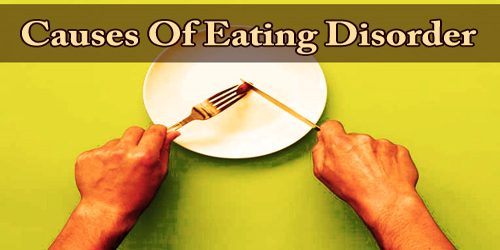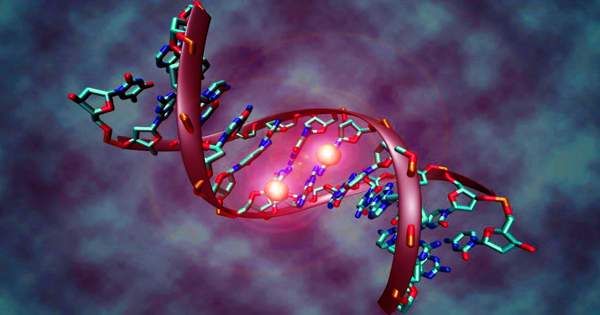Eating disorders are a range of psychological conditions that cause unhealthy eating habits to develop. They might start with an obsession with food, body weight, or body shape. In severe cases, eating disorders can cause serious health consequences and may even result in death if left untreated. They include binge eating disorder, where people eat a large amount in a short period of time; anorexia nervosa, where people eat very little due to a fear of gaining weight and thus have a low body weight; bulimia nervosa, where people eat a lot and then try to rid themselves of the food; pica, where people eat non-food items; rumination syndrome, where people regurgitate food; avoidant/restrictive food intake disorder (ARFID), where people have a lack of interest in food; and a group of other specified feeding or eating disorders. Anxiety disorders, depression, and substance abuse are common among people with eating disorders. These disorders do not include obesity.
Eating disorders can harm the heart, digestive system, bones, and teeth and mouth, and lead to other diseases. Eating disorders often develop in the teen and young adult years, although they can develop at other ages. With treatment, people can return to healthier eating habits and sometimes reverse serious complications caused by the eating disorder. Treatment varies by disorder and may involve counseling, dietary advice, reducing excessive exercise, and the reduction of efforts to eliminate food. Medications may be used to help with some of the associated symptoms. Hospitalization may be needed in more serious cases. About 70% of people with anorexia and 50% of people with bulimia recover within five years. Recovery from binge eating disorder is less clear and estimated at 20% to 60%. Both anorexia and bulimia increase the risk of death.
Causes of Eating Disorder –
The exact cause of eating disorders is unknown; although both biological and environmental factors appear to play a role. As with other mental illnesses, there may be many causes, such as:
- Genetics and biology. Certain people may have genes that increase their risk of developing eating disorders. Biological factors, such as changes in brain chemicals, may play a role in eating disorders.
- Psychological and emotional health. People with eating disorders may have psychological and emotional problems that contribute to the disorder. They may have low self-esteem, perfectionism, impulsive behavior, and troubled relationships.
Risk factors –
Teenage girls and young women are more likely than teenage boys and young men to have anorexia or bulimia, but males can have eating disorders, too. Although eating disorders can occur across a broad age range, they often develop in the teens and early 20s.
Certain factors may increase the risk of developing an eating disorder, including:
- Family history – Eating disorders are significantly more likely to occur in people who have parents or siblings who’ve had an eating disorder.
- Other mental health disorders – People with an eating disorder often have a history of an anxiety disorder, depression, or obsessive-compulsive disorder.
- Dieting and starvation – Dieting is a risk factor for developing an eating disorder. Starvation affects the brain and influences mood changes, rigidity in thinking, anxiety, and reduction in appetite. There is strong evidence that many of the symptoms of an eating disorder are actually symptoms of starvation. Starvation and weight loss may change the way the brain works in vulnerable individuals, which may perpetuate restrictive eating behaviors and make it difficult to return to normal eating habits.
- Stress – Whether it’s heading off to college, moving, landing a new job, or a family or relationship issue, change can bring stress, which may increase your risk of an eating disorder.
There are also many other possibilities such as environmental, social, and interpersonal issues that could promote and sustain these illnesses. Also, the media are oftentimes blamed for the rise in the incidence of eating disorders due to the fact that media images of the idealized slim physical shape of people such as models and celebrities motivate or even force people to attempt to achieve slimness themselves. The media are accused of distorting reality, in the sense that people portrayed in the media are either naturally thin and thus unrepresentative of normality or unnaturally thin by forcing their bodies to look like the ideal image by putting excessive pressure on themselves to look a certain way. Although eating disorders can affect people of any gender at any life stage, they’re most often reported in adolescents and young women. In fact, up to 13% of youth may experience at least one eating disorder by the age of 20.
In fact, certain eating disorders appear to be mostly nonexistent in cultures that haven’t been exposed to Western ideals of thinness. That said, culturally accepted ideals of thinness are very present in many areas of the world. Yet, in some countries, few individuals end up developing an eating disorder. Thus, they are likely caused by a mix of factors.
More recently, experts have proposed that differences in brain structure and biology may also play a role in the development of eating disorders. In particular, levels of the brain messenger’s serotonin and dopamine may be factors. However, more studies are needed before strong conclusions can be made.
Information Sources:
















